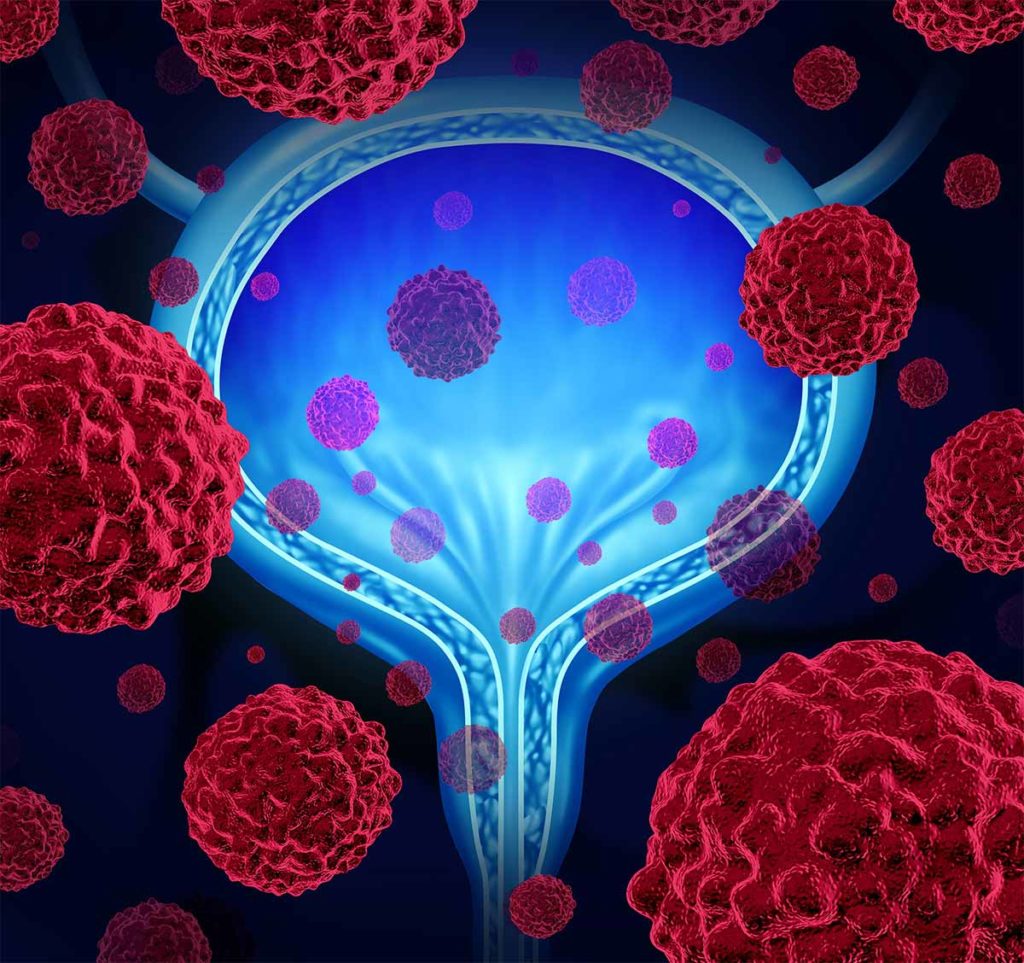Study Aims to Find Personalized Bladder Cancer Treatment Strategies Relevant to Military Veterans
Researchers at Penn State Cancer Institute and Penn State College of Medicine have begun a three-year U.S. Department of Defense-funded study that aims to identify more effective biomarkers and develop more personalized immunotherapy approaches for bladder cancer treatment.
More than 80,000 people receive a bladder cancer diagnosis in the U.S. each year.¹ It’s the fourth most common cancer diagnosed among U.S. military veterans,² whose risk factors include an increased incidence in smoking compared to that of the general population.³ “Veterans in the combat theater also can be exposed to environmental toxicants that raise their risk for bladder cancer,” said David Degraff, PhD, director of Translational Research within the Department of Urology at the College of Medicine.
Survival rates for the most advanced types of bladder cancers are low. While the general five-year survival rate is 77%, that rate falls to 37% if the cancer extends through the bladder to the surrounding tissue or has spread to nearby lymph nodes or organs. If the cancer has spread to distant parts of the body, the five-year survival rate is just 6%.4

More than 80,000 people receive a bladder cancer diagnosis in the U.S. each year. It’s the sixth most common cancer affecting military veterans.
Immune oncology (IO)-based treatment has emerged in recent years as a way to attack the most aggressive types of bladder cancer. By reinvigorating the immune system, IO enables the patient’s body to attack their own cancer. But the biomarker used to determine which patients will respond to one type of IO, PD-L1, is dynamic within a tumor, and many patients don’t express it well.
“It’s been said that a bad biomarker is as bad as a bad drug,” Degraff said. “If you look at it objectively, PD-L1 is suboptimal.”
Only 15% to 20% of bladder cancer patients who are eligible for treatment with systemic immunotherapy based on PD-L1 expression respond, Degraff said. “While those patients respond very well to treatment, using PD-L1 as a biomarker also exposes too many patients to treatments that won’t be effective and carry serious side effects,” he said.
PD-L1 is one member of a large family of interferon-responsive genes (ISGs). Like PD-L1, ISG expression may predict response to IO. However, ISG expression is also dynamic. Degraff and his research team hypothesize that identifying mechanisms required for the stable regulation of ISG has the potential to identify the next generation of predictive biomarkers and IO drug targets.
“In addition to identifying a better biomarker and limiting overtreatment, we also want to understand more about how tumor-associated genetic changes influence the tumor immune microenvironment,” Degraff said. “Doing so may allow us to enhance IO treatment success rates in nonresponsive patients, including military veterans.”
Degraff’s co-investigators in the study are Dr. Jay Raman, urologist and chair, Department of Urology, Penn State Cancer Institute; Dr. Joshua Warrick, anatomic pathologist and associate professor, Department of Pathology and Laboratory Medicine, Penn State Cancer Institute; Dr. Monika Joshi, hematologist/medical oncologist and associate professor, Department of Medicine, Division of Hematology and Oncology, Penn State Cancer Institute; and Christopher Norbury, PhD, professor, Department of Microbiology and Immunology, Penn State College of Medicine.
Support for the study comes from the Penn State Health Milton S. Hershey Medical Center departments of surgery and pathology. “The Bladder Cancer Survivor Group at Penn State Cancer Institute, run by Dr. Matthew Kaag, also provides support,” Degraff said. “Meeting with survivors has been a tremendous inspiration for us.”
David Degraff, PhD
Assistant professor, Department of Pathology and Laboratory Medicine
Assistant professor, Department of Urology, Penn State Cancer Institute
Director of Translational Research, Department of Urology
Email: ddegraff@pennstatehealth.psu.edu
Connect with Penn State Health Urology on Doximity

Jay D. Raman, MD
Chair, Department of Urology
Professor, Department of Urology
Professor, Department of Surgery, Penn State Cancer Institute
Head, Robotic Surgery
Phone: 717-531-8887
Email: jraman@pennstatehealth.psu.edu
Fellowship: Urology, University of Texas Southwestern Medical Center, Dallas
Residency: General Surgery, New York-Presbyterian Weill Cornell Medical Center, New York; Urology, New York-Presbyterian Weill Cornell Medical Center, New York
Medical School: Weill Cornell Medicine/Cornell University, New York
Connect with Jay D. Raman, MD, on Doximity
References
- Bladder cancer: statistics. Cancer.net website. https://www.cancer.net/cancer-types/bladder-cancer/statistics. Updated January 2021. Accessed June 23, 2021.
- Zullig LL, Jackson GL, Dorn RA, et al. Cancer incidence among patients of the U.S. Veterans Affairs Health Care System. Mil Med. 2012;177(6):693-701. doi:10.7205/milmed-d-11-00434
- Brown DW. Smoking prevalence among US veterans. J Gen Intern Med. 2010;25(2):147-149. doi:10.1007/s11606-009-1160-0
- Bladder cancer: statistics. Cancer.net website. https://www.cancer.net/cancer-types/bladder-cancer/statistics. Updated January 2021. Accessed June 23, 2021.
